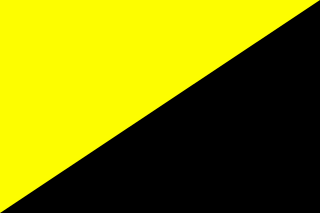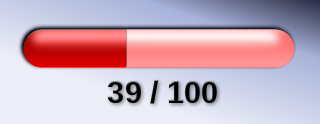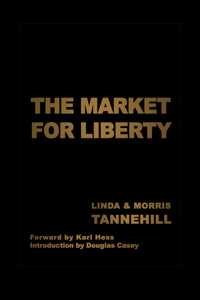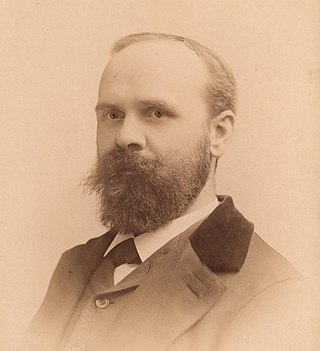
Anarcho-capitalism is an anti-statist, libertarian political philosophy and economic theory that seeks to abolish centralized states in favor of stateless societies with systems of private property enforced by private agencies, based on concepts such as the non-aggression principle, free markets and self-ownership. An anarcho-capitalist philosophy extends the concept of ownership to include control of private property as part of the self, and, in some cases, control of other people as private property. In the absence of statute, anarcho-capitalists hold that society tends to contractually self-regulate and civilize through participation in the free market, which they describe as a voluntary society involving the voluntary exchange of goods and services. In a theoretical anarcho-capitalist society a system of private property would still exist, and would be enforced by private defense agencies and/or insurance companies that were selected by property owners, whose ownership rights or claims would be enforced by private defence agencies and/or insurance companies.

The Machinery of Freedom is a nonfiction book by David D. Friedman that advocates an anarcho-capitalist society from a consequentialist perspective.
Libertarian theories of law build upon classical liberal and individualist doctrines.

Randy Evan Barnett is an American legal scholar. He serves as the Patrick Hotung Professor of Constitutional Law at Georgetown University, where he teaches constitutional law and contracts, and is the director of the Georgetown Center for the Constitution.
Some philosophers distinguish two types of rights, natural rights and legal rights.
Economic freedom, or economic liberty, refers to the agency of people to make economic decisions. This is a term used in economic and policy debates as well as in the philosophy of economics. One approach to economic freedom comes from the liberal tradition emphasizing free markets, free trade, and private property. Another approach to economic freedom extends the welfare economics study of individual choice, with greater economic freedom coming from a larger set of possible choices. Other conceptions of economic freedom include freedom from want and the freedom to engage in collective bargaining.

Self-ownership is the concept of property in one's own body, often expressed as the moral or natural right of a person to have bodily integrity meaning the exclusive right to control one's own body including one's life, where 'control' means exerting any physical interference and 'exclusive' means having the right to install and enforce a ban on other people doing this. Since the legal norm of property title claim incapacitates other people from claiming property title over the same resource at the same time, the right to control or interfere with one's own body in any arbitrary way is secured. Anarcho-capitalism defines self-ownership as the exclusive right to control one's body as long as the owner does not aggress upon others, leading to the concept of the sovereign individual. In Minarchism the 'exclusive right' is understood by separating the 'liberty-to' from the 'liberty-from' where for each person the 'liberty-to' is restricted by all the 'liberty's-from' of others, effectively subjecting the 'liberty-to' to the ban on the usage of force. Thereafter self-ownership means the exclusive right to control one's body insofar considering action between inhabitants and not involving the state, making it roughly a pacifist morality only among inhabitants. Self-ownership is a central idea in several political philosophies that emphasize individualism, such as libertarianism and liberalism.

A night-watchman state, or minarchy, whose proponents are known as minarchists, is a model of a state that is limited and minimal, whose functions depend on libertarian theory. Right-libertarians support it only as an enforcer of the non-aggression principle by providing citizens with the military, the police, and courts, thereby protecting them from aggression, theft, breach of contract, fraud, and enforcing property laws.
The nature of capitalism is criticized by left-wing anarchists, who reject hierarchy and advocate stateless societies based on non-hierarchical voluntary associations. Anarchism is generally defined as the libertarian philosophy which holds the state to be undesirable, unnecessary and harmful as well as opposing authoritarianism, illegitimate authority and hierarchical organization in the conduct of human relations. Capitalism is generally considered by scholars to be an economic system that includes private ownership of the means of production, creation of goods or services for profit or income, the accumulation of capital, competitive markets, voluntary exchange and wage labor, which have generally been opposed by most anarchists historically. Since capitalism is variously defined by sources and there is no general consensus among scholars on the definition nor on how the term should be used as a historical category, the designation is applied to a variety of historical cases, varying in time, geography, politics and culture.
Criticism of libertarianism includes ethical, economic, environmental and pragmatic concerns. With right-libertarianism, critics have argued that laissez-faire capitalism does not necessarily produce the best or most efficient outcome, and that libertarianism's philosophy of individualism and policies of deregulation fail to prevent the abuse of natural resources. Criticism of left-libertarianism is instead mainly related to anarchism. Left and right-libertarians also engage in criticism of each other.
Polycentric law is a theoretical legal structure in which "providers" of legal systems compete or overlap in a given jurisdiction, as opposed to monopolistic statutory law according to which there is a sole provider of law for each jurisdiction. Devolution of this monopoly occurs by the principle of jurisprudence in which they rule according to higher law.

The non-aggression principle (NAP), also called the non-aggression axiom, is the legal or moral rule that states that for every person, all ways of action with their property except aggression are permitted, where aggression is defined as the initiation of forceful action, and where forceful action is defined as 'the application or threat of' 'physical interference or fraud ', any of which without consent. The principle is also called the non-initiation of force. The principle incorporates universal enforceability. In other words the principle represents the substantive law and also incorporates both the procedural law and the sanction law, and can as such be considered anarchic.
Libertarianism is a political philosophy that upholds liberty as a core value. Libertarians seek to maximize autonomy and political freedom, emphasizing equality before the law and civil rights to freedom of association, freedom of speech, freedom of thought and freedom of choice. Libertarians often oppose authority, state power, warfare, militarism and nationalism, but some libertarians diverge on the scope of their opposition to existing economic and political systems. Various schools of libertarian thought offer a range of views regarding the legitimate functions of state and private power. Different categorizations have been used to distinguish various forms of Libertarianism. Scholars distinguish libertarian views on the nature of property and capital, usually along left–right or socialist–capitalist lines. Libertarians of various schools were influenced by liberal ideas.
Right-libertarianism, also known as libertarian capitalism, or right-wing libertarianism, is a libertarian political philosophy that supports capitalist property rights and defends market distribution of natural resources and private property. The term right-libertarianism is used to distinguish this class of views on the nature of property and capital from left-libertarianism, a type of libertarianism that combines self-ownership with an anti-authoritarian approach to property and income. In contrast to socialist libertarianism, right-libertarianism supports free-market capitalism. Like most forms of libertarianism, it supports civil liberties, especially natural law, negative rights, the non-aggression principle, and a major reversal of the modern welfare state. Practitioners of Right-libertarianism usually do not self-describe by that term and often object to it.

The Market for Liberty is a significant anarcho-capitalist book written by Linda and Morris Tannehill. It was preceded by the self-published Liberty via the Market in 1969. The work challenges statutory law and advocates natural law as the basis for society. It also argues that society would not be lawless in the absence of the state. The Market for Liberty spends a great deal of time outlining how different businesses and organizational structures would interact in a laissez-faire society and how these interactions would create checks which would ultimately keep the tendency for crime low. In keeping with radical free-market principles, the book is skeptical about the potential for violent anarcho-capitalist revolution to bring about good outcomes.
A private defense agency (PDA) is a theoretical enterprise which would provide personal protection and military defense services to individuals who would pay for its services. PDAs are advocated in anarcho-capitalism as a way of enforcing the system of private property.
Libertarianism is variously defined by sources as there is no general consensus among scholars on the definition nor on how one should use the term as a historical category. Scholars generally agree that libertarianism refers to the group of political philosophies which emphasize freedom, individual liberty and voluntary association. Libertarians generally advocate a society with little or no government power.
Consequentialist libertarianism, also known as consequentialist liberalism or libertarian consequentialism, is a libertarian political philosophy and position that is supportive of a free market and strong private property rights only on the grounds that they bring about favorable consequences such as prosperity or efficiency.
The following outline is provided as an overview of and topical guide to libertarianism:

Benjamin Ricketson Tucker was an American individualist anarchist and self-identified socialist. Tucker was the editor and publisher of the American individualist anarchist periodical Liberty (1881–1908). Tucker described his form of anarchism as "consistent Manchesterism" and stated that "the Anarchists are simply unterrified Jeffersonian Democrats."








